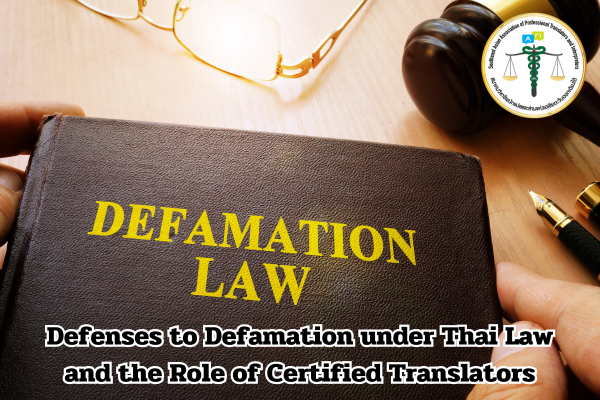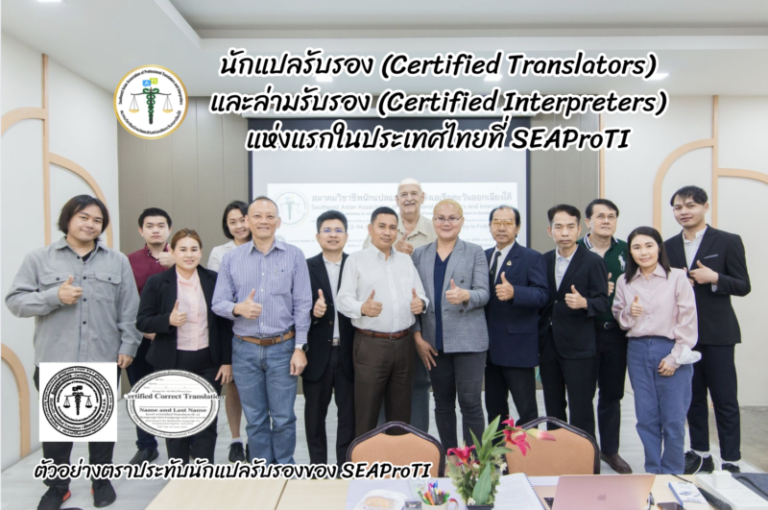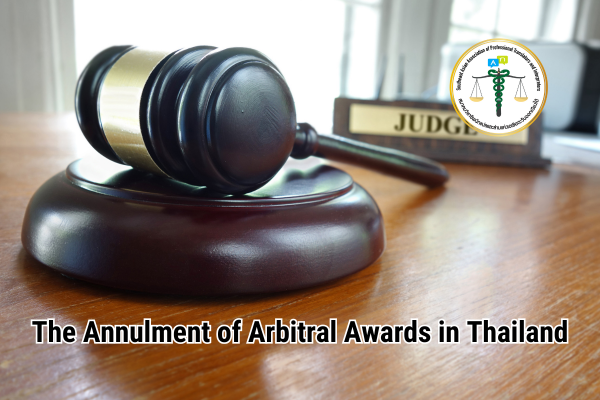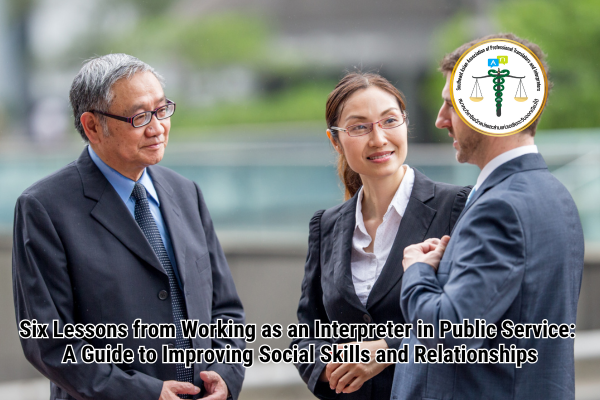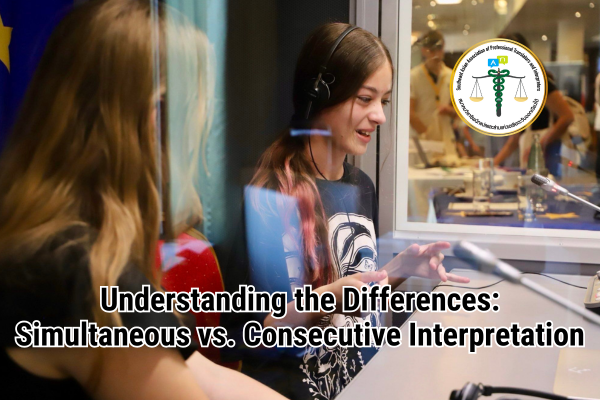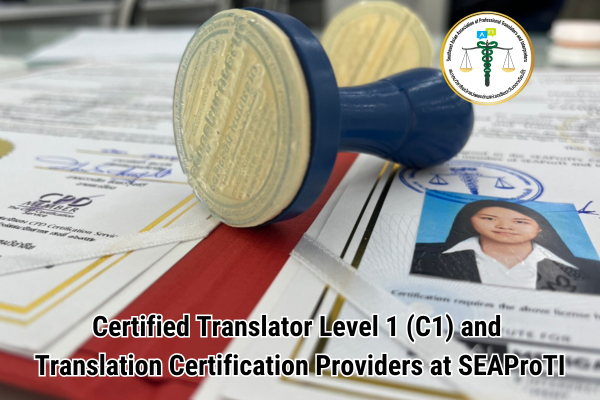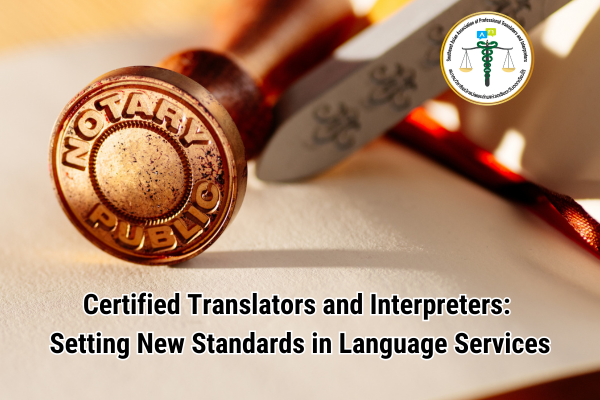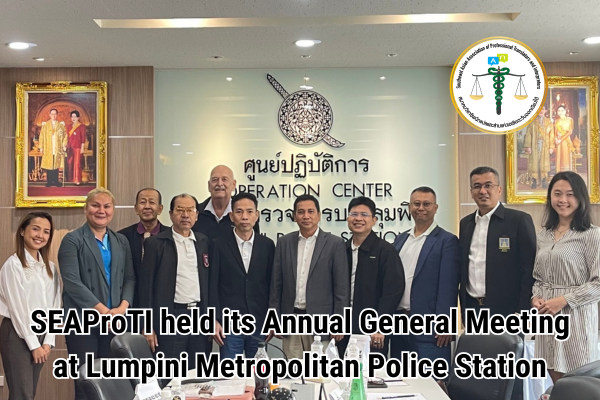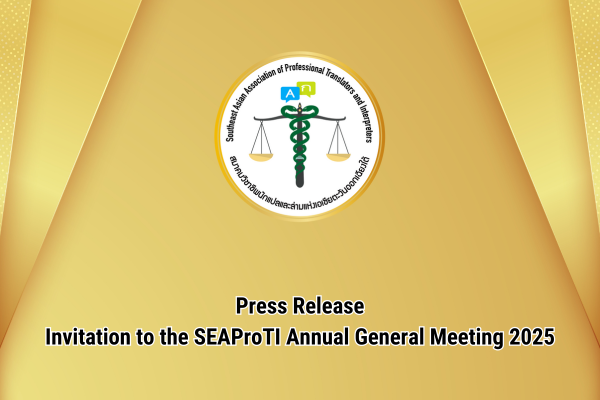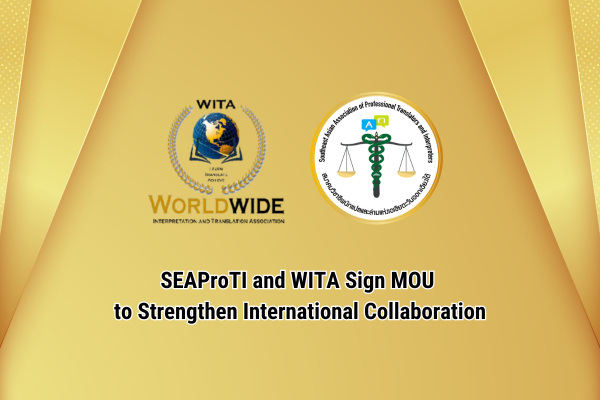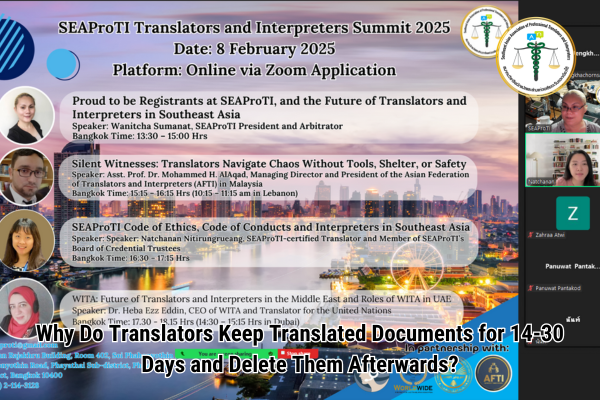Defenses to Defamation under Thai Law and the Role of Certified Translators
27 January 2025, Bangkok – In Thailand, defamation refers to the act of making statements about a person to a third party that are likely to damage that person’s reputation. Unlike some jurisdictions where defamation may only result in civil liability, defamation is a criminal offense under Thai law, punishable by up to one year of imprisonment, a fine of up to 20,000 baht, or both. Despite this, Thai law allows several defenses for those accused of defamation. These defenses, as outlined in the Criminal Code, include:
The expression of any opinion or statement made in good faith, such as: A self-justification or defense, or the protection of a legitimate interest. Made by an official in the exercise of their functions. A fair comment on any person or thing subject to public criticism. A fair report on any public court proceedings or meetings. An expression of a truthful statement, but the accused is not allowed to prove the truth of the statement if it concerns personal matters and proving its truth would not benefit the public.
In Thai Supreme Court Decision No. 14401/2555, the Court ruled that when evaluating a statement that concerns someone’s personal matters but contains information beneficial to the public if proven true, the statement must be considered as a whole, and cannot be separated into personal and non-personal parts. The only exception is where it is clear that a portion of the statement is unrelated to the rest, or where the accused clearly intended to target a specific person.
In Thai Supreme Court Decision No. 1362/2514, the Court ruled that an accusation against a government officer of accepting bribes is not defamation because a statement that a government officer is unlawfully performing their duties, if proven true, would benefit the public.
In Thai Supreme Court Decision No. 8511/2554, the Court held that publishing facts about an open and ongoing court case was not considered defamation, even though the defendant did not clarify that the facts were merely allegations made by the opposing party and that there had been no final judgment on the facts. The Court ruled that the publication was a fair comment on the matter, given its context in analyzing corporate governance following the 1998 Asian Financial Crisis.
Defamation law in Thailand can be complex. Businesses engaged in publishing materials should seek expert legal advice to minimize their legal liabilities.
The Role of Certified Translators in Legal Processes
In cases involving defamation, accurate translation of legal documents and statements is crucial. Defamation often involves statements that could significantly impact an individual’s reputation or public image. If legal documents are not properly translated, it could lead to misunderstandings or legal complications.
Certified translators, especially those recognized by the Southeast Asia Professional Translators and Interpreters Association (SEAProTI), play an important role in ensuring that legal documents related to defamation cases are translated correctly. This ensures that all parties involved have a clear and accurate understanding of the statements or accusations being made, preventing any misinterpretations that could lead to legal disputes.
SEAProTI-certified translators specialize in legal translations and are trained to accurately convey the meaning of legal documents in both the source and target languages. Their expertise helps ensure that documents are consistent with legal requirements and standards, especially when dealing with defamation cases.
SEAProTI’s role in certifying translators and interpreters ensures that individuals and businesses are working with professionals who can handle legal documents with care, ensuring compliance with Thai law. Whether a business is involved in publishing materials that could be subject to defamation or is facing a defamation claim, certified translators help mitigate risks by providing accurate translations that ensure all legal and factual information is conveyed properly.
Conclusion
Defamation laws in Thailand are complex, particularly when dealing with statements that may damage someone’s reputation. Understanding the legal defenses available and the importance of accurate translations in defamation cases is crucial. Certified translators, particularly those recognized by SEAProTI, play an essential role in ensuring legal documents are properly translated, helping businesses and individuals navigate the legal system and avoid potential disputes. Working with qualified translators reduces the risks of legal complications and ensures that all documents comply with Thai legal standards.
SEAProTI’s certified translators, translation certification providers, and certified interpreters:
The Southeast Asian Association of Professional Translators and Interpreters (SEAProTI) has officially announced the criteria and qualifications for individuals to register as “Certified Translators,” “Translation Certification Providers,” and “Certified Interpreters” under the association’s regulations. These guidelines are detailed in Sections 9 and 10 of the Royal Thai Government Gazette, issued by the Secretariat of the Cabinet under the Office of the Prime Minister of the Kingdom of Thailand, dated July 25, 2024, Volume 141, Part 66 Ng, Page 100.
To read the full publication, visit: the Royal Thai Government Gazette
การป้องกันคดีหมิ่นประมาทตามกฎหมายไทยและบทบาทของนักแปลรับรอง
27 มกราคม 2568, กรุงเทพมหานคร – ในประเทศไทย การหมิ่นประมาทถือเป็นการกระทำที่เกี่ยวข้องกับการกล่าวหาหรือแสดงความคิดเห็นเกี่ยวกับบุคคลหนึ่งไปยังบุคคลที่สาม ซึ่งมีแนวโน้มที่จะทำลายชื่อเสียงของบุคคลนั้น โดยทั่วไปแล้ว การหมิ่นประมาทจะมีผลทางกฎหมายทั้งในด้านอาญาและแพ่ง โดยในกฎหมายไทย การหมิ่นประมาทถือเป็นความผิดทางอาญา ที่อาจมีโทษจำคุกสูงสุดถึงหนึ่งปี หรือปรับไม่เกินสองหมื่นบาท หรือทั้งจำทั้งปรับ อย่างไรก็ตาม กฎหมายไทยได้กำหนดการป้องกันหรือข้อยกเว้นสำหรับผู้ที่ถูกกล่าวหาว่าหมิ่นประมาท โดยมีการระบุไว้ในประมวลกฎหมายอาญา ซึ่งการป้องกันหลักๆ ในคดีหมิ่นประมาทได้แก่:
การแสดงความคิดเห็นหรือการกล่าวถ้อยคำที่แสดงออกมาโดยสุจริตและมีเจตนาปกป้องสิทธิหรือผลประโยชน์ที่ชอบด้วยกฎหมาย การแสดงความคิดเห็นหรือการกล่าวถ้อยคำที่เป็นการแสดงความคิดเห็นที่เป็นธรรมต่อบุคคลหรือสิ่งใดๆ ที่อยู่ภายใต้การวิจารณ์จากสาธารณะ การแสดงความคิดเห็นหรือการกล่าวถ้อยคำที่เป็นการรายงานที่แท้จริงเกี่ยวกับการดำเนินคดีในศาลหรือการประชุมที่เปิดเผย การแสดงความคิดเห็นที่เป็นความจริง แต่ผู้ถูกกล่าวหาจะไม่สามารถพิสูจน์ความจริงในเรื่องนั้นได้หากเป็นเรื่องส่วนตัวของบุคคลและการพิสูจน์ความจริงนั้นไม่เป็นประโยชน์ต่อสาธารณะ
ในคำพิพากษาของศาลฎีกาที่ 14401/2555 ศาลได้มีคำวินิจฉัยว่า เมื่อพิจารณาถึงข้อความที่เกี่ยวข้องกับเรื่องส่วนตัวของบุคคล ซึ่งยังมีเรื่องที่เป็นประโยชน์ต่อสาธารณะหากพิสูจน์ได้ ความคิดเห็นหรือข้อความนั้นต้องพิจารณาโดยรวม ไม่สามารถแยกเป็นส่วนๆ ระหว่างเรื่องส่วนตัวและเรื่องที่เป็นประโยชน์ต่อสาธารณะได้ เว้นแต่จะมีการพิสูจน์ว่า ข้อความบางส่วนไม่เกี่ยวข้องกับส่วนอื่นๆ หรือหากผู้กล่าวมีเจตนาหมายที่จะกล่าวถึงบุคคลใดบุคคลหนึ่งโดยเฉพาะ
ในคำพิพากษาของศาลฎีกาที่ 1362/2514 ศาลได้พิพากษาว่า การกล่าวหาข้าราชการว่ารับสินบนไม่ถือเป็นการหมิ่นประมาท เนื่องจากหากการกระทำของข้าราชการที่ถูกกล่าวหาว่าทำผิดกฎหมายและพิสูจน์ได้ จะเป็นประโยชน์ต่อสาธารณะ
และในคำพิพากษาของศาลฎีกาที่ 8511/2554 ศาลได้ตัดสินว่า การเผยแพร่ข้อเท็จจริงที่กล่าวถึงในกระบวนการพิจารณาคดีในศาลที่ยังไม่สิ้นสุด ไม่ถือเป็นการหมิ่นประมาท แม้ว่าผู้ถูกกล่าวหาจะไม่ระบุว่าข้อเท็จจริงเหล่านั้นเป็นเพียงข้อกล่าวหาของคู่ความฝ่ายตรงข้าม และแม้ว่าจะยังไม่มีคำพิพากษาศาลที่สิ้นสุดการตัดสินข้อเท็จจริงในเรื่องนั้นๆ ก็ตาม ศาลพิจารณาว่าการเผยแพร่ข้อเท็จจริงในบทความที่วิเคราะห์เกี่ยวกับการกำกับดูแลกิจการของบริษัทหลังวิกฤตเศรษฐกิจในปี 2541 เป็นการแสดงความคิดเห็นที่เป็นธรรมตามข้อกำหนดในประมวลกฎหมายอาญามาตรา 329(3)
กฎหมายเกี่ยวกับการหมิ่นประมาทในประเทศไทยนั้นซับซ้อนและมีข้อกำหนดที่ต้องเข้าใจอย่างละเอียด ดังนั้น หากธุรกิจที่เกี่ยวข้องกับการเผยแพร่ข้อมูลหรือการสื่อสารต้องการลดความเสี่ยงจากการถูกฟ้องร้องในข้อหาหมิ่นประมาท จึงควรขอคำปรึกษาจากทนายความที่มีความเชี่ยวชาญ
บทบาทของนักแปลรับรองในกระบวนการทางกฎหมาย
ในการดำเนินการตามกฎหมายเกี่ยวกับการหมิ่นประมาท การแปลเอกสารทางกฎหมายและการแปลข้อความที่เกี่ยวข้องกับคดีหมิ่นประมาทมีความสำคัญเป็นอย่างยิ่ง เพราะข้อความที่เป็นการหมิ่นประมาทมักจะเกี่ยวข้องกับการกล่าวถึงบุคคลหรือเหตุการณ์ที่อาจจะมีผลกระทบต่อชื่อเสียงและภาพลักษณ์ของผู้ที่เกี่ยวข้อง หากการแปลเอกสารไม่ถูกต้องอาจทำให้เกิดความเข้าใจผิดหรือเกิดปัญหาทางกฎหมายตามมา
นักแปลรับรองที่ได้รับการรับรองจาก สมาคมวิชาชีพนักแปลและล่ามแห่งเอเชียตะวันออกเฉียงใต้ (SEAProTI) มีบทบาทสำคัญในการรับรองการแปลเอกสารที่เกี่ยวข้องกับคดีหมิ่นประมาท โดยเฉพาะเมื่อเอกสารเหล่านั้นต้องนำไปใช้ในกระบวนการพิจารณาคดีในศาล การแปลต้องทำให้ข้อความถูกถ่ายทอดออกมาอย่างถูกต้องและตรงตามเจตนารมณ์ของผู้เขียนต้นฉบับ เพื่อหลีกเลี่ยงการเข้าใจผิดหรือการทำให้เกิดผลกระทบทางกฎหมาย
SEAProTI จัดอบรมและรับรองนักแปลและล่ามที่มีความสามารถในการแปลเอกสารทางกฎหมายโดยเฉพาะ ซึ่งทำให้ธุรกิจที่ต้องการดำเนินการเกี่ยวกับการเผยแพร่ข้อมูลหรือการสื่อสารที่อาจมีความเสี่ยงในการถูกฟ้องร้องในข้อหาหมิ่นประมาทสามารถมั่นใจได้ว่าการแปลของพวกเขาจะถูกต้องและเป็นไปตามกฎหมาย นักแปลที่ได้รับการรับรองจาก SEAProTI จึงมีส่วนช่วยในการลดความเสี่ยงและป้องกันการเกิดข้อพิพาททางกฎหมายในกรณีที่เกี่ยวข้องกับการหมิ่นประมาท
สรุป
การหมิ่นประมาทเป็นเรื่องที่ซับซ้อนในกฎหมายไทย โดยเฉพาะเมื่อเกี่ยวข้องกับการแสดงความคิดเห็นที่มีผลกระทบต่อบุคคลหรือองค์กร การเข้าใจข้อกำหนดทางกฎหมายและบทบาทของนักแปลรับรองที่มีความเชี่ยวชาญในการแปลเอกสารทางกฎหมายเป็นสิ่งสำคัญอย่างยิ่ง นักแปลและล่ามรับรองจาก SEAProTI จึงมีบทบาทสำคัญในการช่วยให้ธุรกิจต่างๆ ดำเนินการได้อย่างถูกต้องและลดความเสี่ยงจากการถูกฟ้องร้องในข้อหาหมิ่นประมาท
เกี่ยวกับนักแปลรับรอง ผู้รับรองการแปล และล่ามรับรองของสมาคมวิชาชีพนักแปลและล่ามแห่งเอเชียตะวันออกเฉียงใต้
สมาคมวิชาชีพนักแปลและล่ามแห่งเอเชียตะวันออกเฉียงใต้ (SEAProTI) ได้ประกาศหลักเกณฑ์และคุณสมบัติผู้ที่ขึ้นทะเบียนเป็น “นักแปลรับรอง (Certified Translators) และผู้รับรองการแปล (Translation Certification Providers) และล่ามรับรอง (Certified Interpreters)” ของสมาคม หมวดที่ 9 และหมวดที่ 10 ในราชกิจจานุเบกษา ของสำนักเลขาธิการคณะรัฐมนตรี ในสำนักนายกรัฐมนตรี แห่งราชอาณาจักรไทย ลงวันที่ 25 ก.ค. 2567 เล่มที่ 141 ตอนที่ 66 ง หน้า 100 อ่านฉบับเต็มได้ที่: นักแปลรับรอง ผู้รับรองการแปล และล่ามรับรอง


